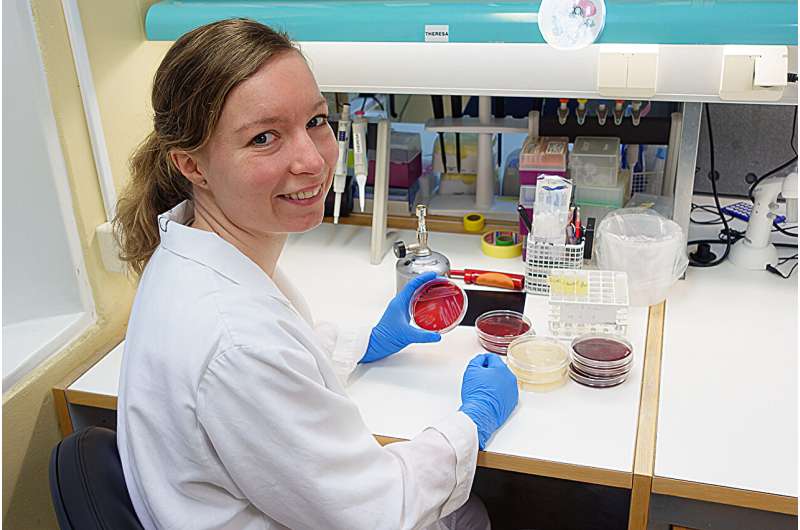This article has been reviewed according to Science X's editorial process and policies. Editors have highlighted the following attributes while ensuring the content's credibility:
fact-checked
peer-reviewed publication
proofread
Researchers develop potential vaccine against antibiotic-resistant enterococci

Creating new vaccines is one of several possible strategies in the fight against antibiotic-resistant bacteria, in addition to using fewer antibiotics and using them smarter.
One of the bacteria that we still do not have vaccines against is Enterococcus faecium. It is often resistant to many common antibiotics, including a type of reserve antibiotic or "last resort" antibiotic called Vancomycin.
Patients who are hospitalized often have a weaker immune system and are particularly susceptible to infections with this bacterium. In addition, antibiotic resistance means that we increasingly no longer have effective medicine to help patients fight this bacterium.
However, researchers from UiT, The Arctic University of Norway, and Ludwig Maximilian University in Germany have now found out how we can create an enterococcal vaccine that is relatively easy to produce. Having access to such a vaccine against antibiotic-resistant enterococci will be an important step in the fight against antibiotic resistance.
The keyword is membrane vesicles. These are small spheres or balls that bacteria secrete from the cell wall, and they have some fascinating properties. They are actually mini-versions of the bacteria that release them, and they have some major advantages that make them possible candidates for a vaccine that can be released naturally in the body.
The vesicles contain both immune-stimulating proteins, DNA, and fats. They are also very stable, and they have no infectious properties. Thus, they cannot make us sick.
UiT researchers have previously demonstrated how we can isolate and preserve these vesicles, and now they have found a new and important use for them. According to Theresa Wagner, a researcher at UiT, the findings are very interesting:
"We tested these vesicles on rabbits, and it led to a powerful boost in the rabbits' immune system. We then tested the serum produced by the rabbits with great success on various strains of enterococci. It even killed enterococci that are resistant to several types of antibiotics, including Vancomycin-resistant bacteria (VRE)."
The research is published in the International Journal of Molecular Sciences.
More information: Theresa Maria Wagner et al, Enterococcal Membrane Vesicles as Vaccine Candidates, International Journal of Molecular Sciences (2023). DOI: 10.3390/ijms242216051




















